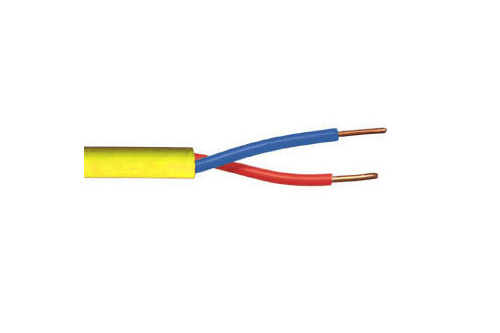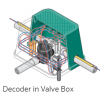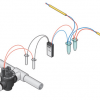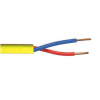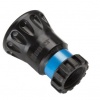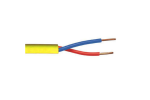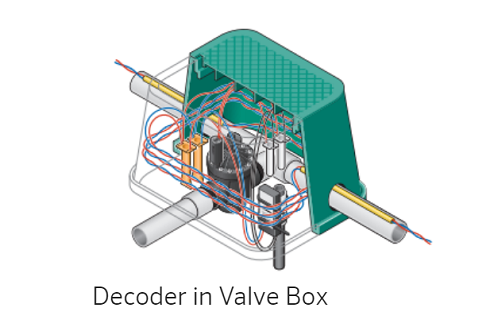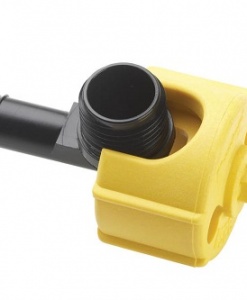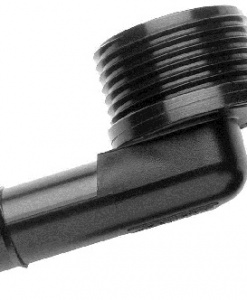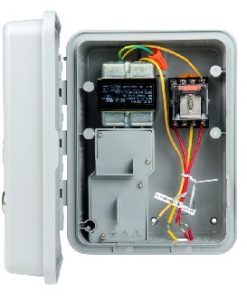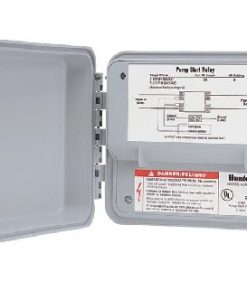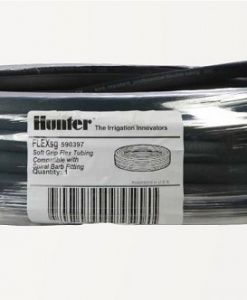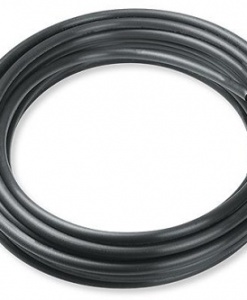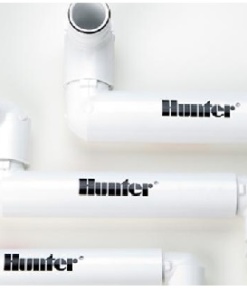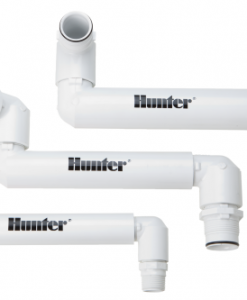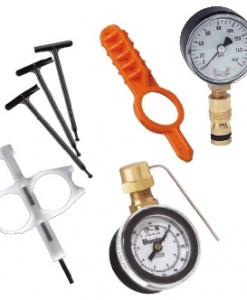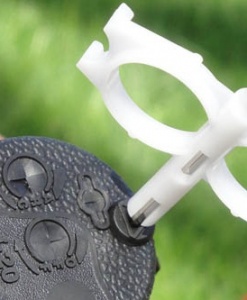Overview:
Two-wire decoder technology permits control of large irrigation systems, over
relatively long distances, by inserting waterproof decoder modules as needed in a
low voltage, direct burial two-wire path.
The wire is cut wherever station control is needed, and the decoder wires
are spliced into the path. The decoders are then connected to local
standard 24 VAC solenoids for individual operation of valves and
similar devices.
Each decoder is uniquely addressed, and both the signal for their address, and the power
required for solenoid operation, are sent over the single pair of wires. Up to 99 decoders
can be individually operated over a single pair of wires in this manner.
Benefits:
- Decoder systems save wire. The greatest attraction to many users is the ability to operate 99 stations with only two wires
(usually 14 AWG/2.08 mm2
solid copper), instead of 100+ wires. They can also save connectors and labor associated with
large numbers of individual wire runs.
• Decoder systems are flexible. As long as the two-wire path is reasonably
accessible throughout an irrigation system, stations can be added later
by inserting additional decoders into the path at any point, with minimum
disruption of turf and landscape. Decoder wire runs can even be spliced
and tee’d to follow pipe trenches and minimize wasted wire.
• Decoder systems are electrically efficient. They have the ability to operate
large numbers of solenoids over relatively long distances.
» With 14 AWG/2.08 mm2
solid wire, a controller can activate solenoids up to 10,000 ft/3 km away (metric diameter
based on commonly available wire sizes in international markets. IDWIRE1 is technically 1.63 mm diameter, or 2.08
mm2
area).
» With 12 AWG/3.3 mm2
dia. wire, they can operate up to 15,000 ft/4.5 km. Longer runs are possible with even heavier
wire, but not practical.
» The ACC family of decoder controllers provides up to 6 two-wire paths to the field. Therefore, a controller can
operate up to 15,000 ft/4.5 km in each of 6 different directions.


